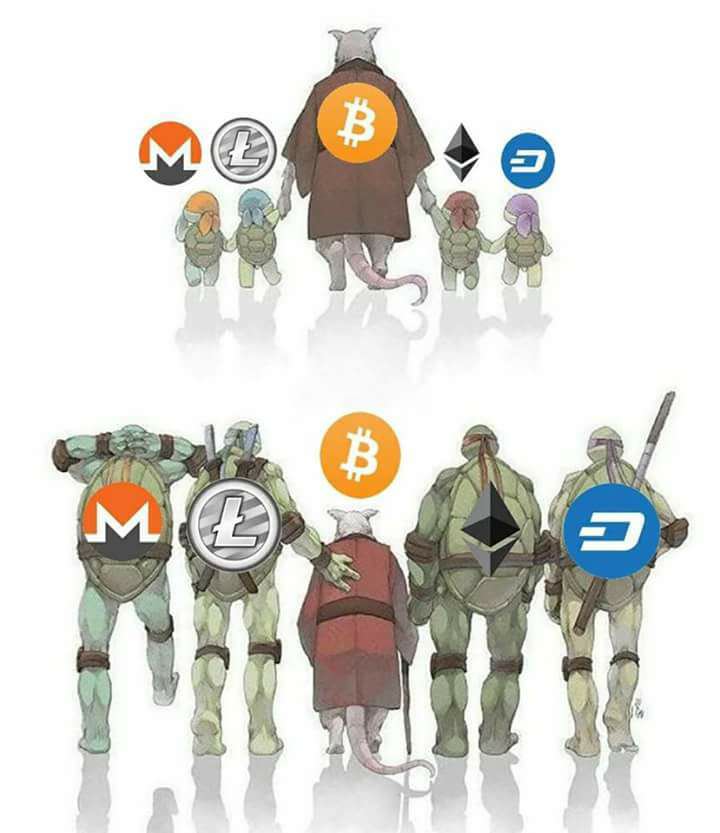Bitcoins Ninja Turtles all grown up
Cryptocurrencies can be a little confusing. Are they digital money or more like gold? Are they a new way to pay for things online or a way to store value? Those aren’t easy questions to answer when you’re talking about hundreds of different cryptocurrencies, some old, some new, and some very different from the rest. When you focus Ethereum vs. bitcoin, though, there are some stark, obvious differences
Their age is the most obvious, with bitcoin having entered this world as the very first global cryptocurrency in 2009 and Ethereum only showing up in 2015 as a potential alternative. Although it is less proven than its predecessor, Ethereum does have a few nifty features which give it a lot more potential than its older sibling in some key areas. For the purpose of this guide, we’ll look at two shared aspects of the cryptocurrencies: Their ability to act as a store of value and as transactional mediums. We’ll also take a look at some of the unique features which make them stand apart.
If you want a more general look at cryptocurrencies, or the steps for how to buy, sell or trade bitcoin and Ethereum, have a read of some of our other guides.
AS A STORE OF VALUE
The most successful cryptocurrency for storing value continues to be bitcoin. As the most valuable coin in the world by quite some margin — and the progenitor of the entire cryptocurrency revolution — bitcoin has proven itself. It’s far more recognized than any of its peers, and that makes it easier to buy, store, and sell.
That’s not to say that Ethereum and its coin, Ether, have been ineffective. For such a young currency, Ethereum has proved to be one of the most popular. At the time of writing its market value and 24-hour trading volume are second only to Bitcoin. The actual monetary value for a single “ETH” however, is less than five percent of bitcoin, so owning a few Ether is no way near as pleasant as owning a few bitcoin.
Part of that is down to bitcoins’ built-in scarcity. There is a hard limit on the eventual number of bitcoins, with diminishing returns for miners as they approach that mythical 21 million mark. One day no more bitcoins will be created, and no matter how many end up being lost, no more will be made. Thanks to supply and demand, that means bitcoin should, in theory, grow in value, at least until no more coins appear.
In comparison, Ethereum will continue to release the same amount of Ether on a regular basis forever, so its supply will remain constant and expanding.

✅ @justforcrypto, I gave you an upvote on your first post! Please give me a follow and I will give you a follow in return!
Please also take a moment to read this post regarding bad behavior on Steemit.